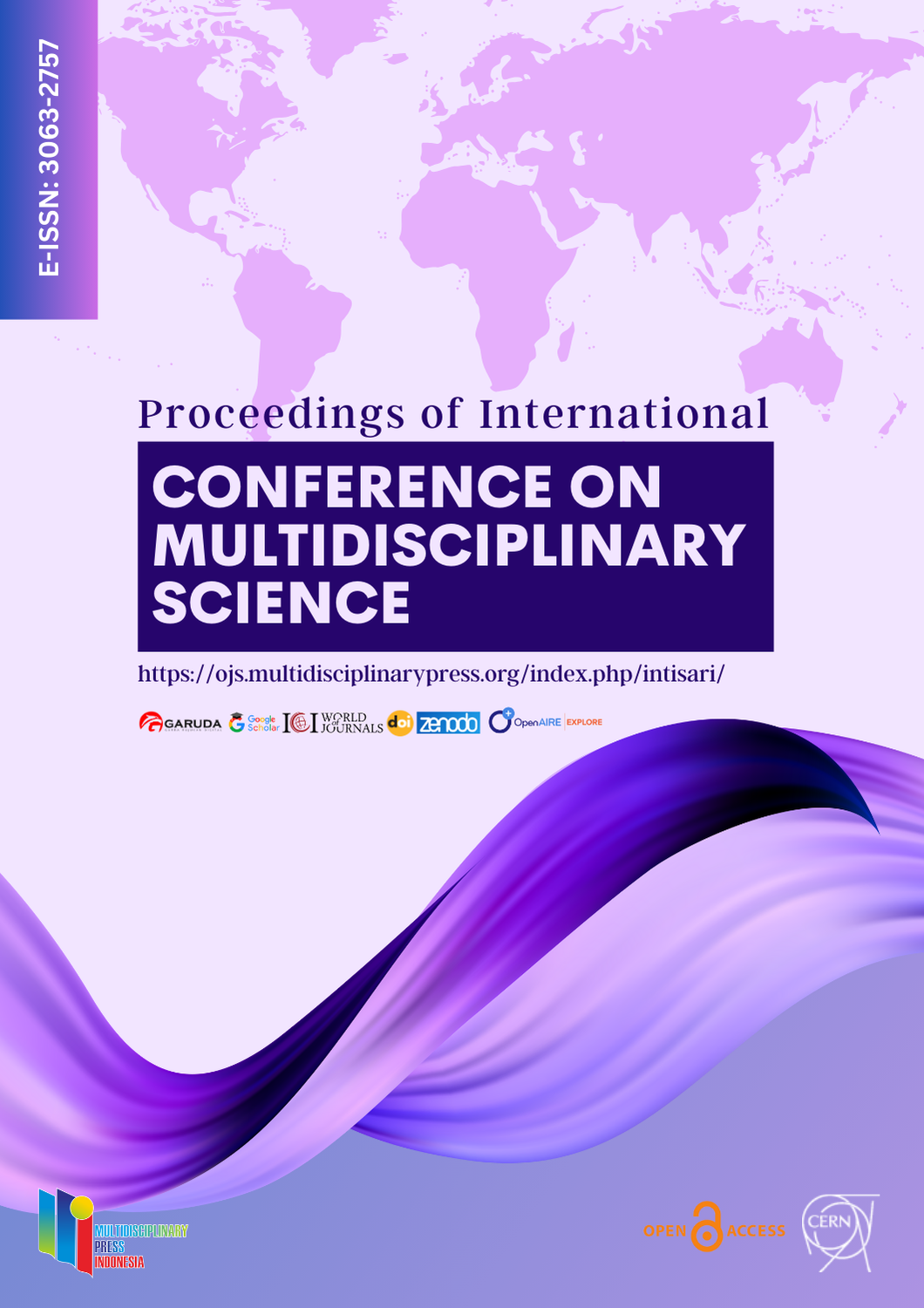The Influence of Democratic Leadership on Performance of Employees in The Population and Civil Records Office of Binjai City
Keywords:
Democratic Leadership, Employee PerformanceAbstract
The purpose of this research is to determine and analyze the influence of democratic leadership on employee performance at the Binjai City Population and Civil Registry Office. This research was conducted using a causal associative quantitative approach. The sample used was 61 employees from the total number of employees. The research results show that democratic leadership has a positive and significant effect on employee performance. This is shown by the T-value of 8.389 > t table 1.67109 with a P-Value of 0.000 < 0.05. The regression coefficient shows that if democratic leadership is increased by 1 unit, employee performance will increase by 1,549 units assuming other variables remain constant. Apart from that, the results of the determination test show an Adjusted R Square value of 0.536 or 53.60%, which indicates that democratic leadership has a low influence on employee performance, while the remaining 46.40% is influenced by other factors that have not been studied. Thus, partially, democratic leadership has a positive and significant effect on the work of employees at the Binjai City Population and Civil Registry Office. This identifies that improvements in democratic leadership can contribute to improved employee performance.
Downloads
References
Abdillah, MA, Prayekti, P., & Herawati, J. (2023). The Influence of Democratic Leadership, Organizational Justice and Job Satisfaction on Organizational Commitment at Cafe Basa-Basi Yogyakarta. Batanghari University Jambi Scientific Journal, 23(3), 3283.https://doi.org/10.33087/jiubj.v23i3.3724
Afandi. (2018). Human Resource Management: Concept Theory and Indicators. Zanafa Publishing.
Ambalele, E., & Tellu, A.H. (2023). The Importance of Transformational Leadership in Human Resource Management.https://doi.org/10.24815/jimps.v8i2.27356
Djaluputro, S., & Andrias, MS (2023). Analysis of Leadership Style in Employee Engagement at PT. DMI: Qualitative Case Study. Ocean Journal of Economics and Business, 14(3), 514–529.https://doi.org/10.33059/jseb.v14i3.8230
Fadilah, MA, & Wilian, R. (2023). The Influence of Transformational Leadership on Employee Performance with Organizational Commitment as an Intervening Variable at PT. Enseval Putera Megatrading, Tbk Jambi Branch.
Fadly, H. (2024). Implementation of Organizational Culture and Leadership Approach to Increasing Employee Productivity. 5(3).
Ferils, M., & Utami, M. (2022). The Influence of Democratic Leadership Style and Work Motivation on the Performance of Employees at the Mamuju Regency Ministry of Religion Office. 1(1).
Ghozali & Latan. (2015). Concepts, Techniques, Applications Using Smart PLS 3.0 for Empirical Research. BP Undip. SemarangHarnanto. 2017. Cost Accounting: Historical Cost Systems. BPFE.
Ghozali, Imam & Latan, H. (2015). Partial Least Squares "Engineering Concepts and Applications Using the Smart PLS 3.0 Program." Diponegoro University.
Iqbal, M. (2021). Transformational Leadership in School/Madrasah Development Efforts. PIONEERS: JOURNAL OF EDUCATION, 10(3).https://doi.org/10.22373/pjp.v10i3.12187
Kaswan. (2017). Industrial and Organizational Psychology. Alphabet.
Kuncooro, Munajad. (2013). Research Methods for Business and Economics. Edition 4. Erlangga.
Kurniawan, IS, & Nur Safitri, Q. (2022). The influence of affective commitment, job satisfaction, transformational leadership, and employee empowerment on employee OCB. Journal of Management, 14(1), 17–25.https://doi.org/10.30872/jmmn.v14i1.10386
Mangkunegara. AAP (2020). Agency Human Resources Management. Edition XIV. PT. Rosdakarya Teenager.
Muktamar, A., & Pinto, J. (2023). The Influence of Transformational Leadership in Improving the Performance of Educational Organizations.
Mulyana, H., Suryanto, S., & Hidayat, AI (2023). The Influence of Motivation and Work Environment on Employee Performance at the Garuda Community Health Center, Andir District, Bandung City. Publicuho Journal, 6(3), 977–987.https://doi.org/10.35817/publicuho.v6i3.223
Olla, TSO (2017). The Influence of Democratic Leadership on Employee Performance (Study at PT. Timor Express Intermedia Kupang). JOURNAL OF MANAGEMENT, 5.
Rifdah Abadiyah, & Ilviyah, L. (2022). The Role of Affective Commitment in Mediating Transformational Leadership Style and Job Characteristics on the Performance of SME Konveksi Employees. Scientific Journal of Management and Entrepreneurship, 1(3), 330–338.https://doi.org/10.55606/jimak.v1i2.484
Satya Alam, A. (2020). The Influence of Organizational Culture, Organizational Commitment and Leadership Style on Employee Performance (Empirical Study at the Social Service and Manpower and Industry Service of Surakarta City). Muhammadiyah Surakarta university.
Sitio, PA, & Arwiyah, MY (2023). The Influence of Democratic Leadership Style on Employee Performance at the North Sumatra Regional Settlement Infrastructure Center. e-Proceeding of Management.
Sugiyono. (2018). Combination Research Methods (Mixed Methods). CV. Alphabet.
Sugiyono. (2019). Quantitative and Qualitative Research Methodologies and R&D. Alphabet.
Tjahjono, HK, Prasetyo, F., & Palupi, M. (2018). Transformational Leadership in Organizational Citizenship Behavior and Affective Commitment. Journal of Services Management and Marketing, 11(2), 217–232.https://doi.org/10.25105/jmpj.v11i2.2771
Turmono. (2020). The Influence of Democratic Leadership Style on Employee Performance. Journal of Technology and Business, 2(2), 186–193.https://doi.org/10.37087/jtb.v2i2.104
Wibowo. (2016). Performance Management, Fifth Edition. PT. Rajagrafindo Persada.
Downloads
Published
How to Cite
Issue
Section
Categories
License
Copyright (c) 2024 Yani Utami Leo, Mesra B

This work is licensed under a Creative Commons Attribution 4.0 International License.





